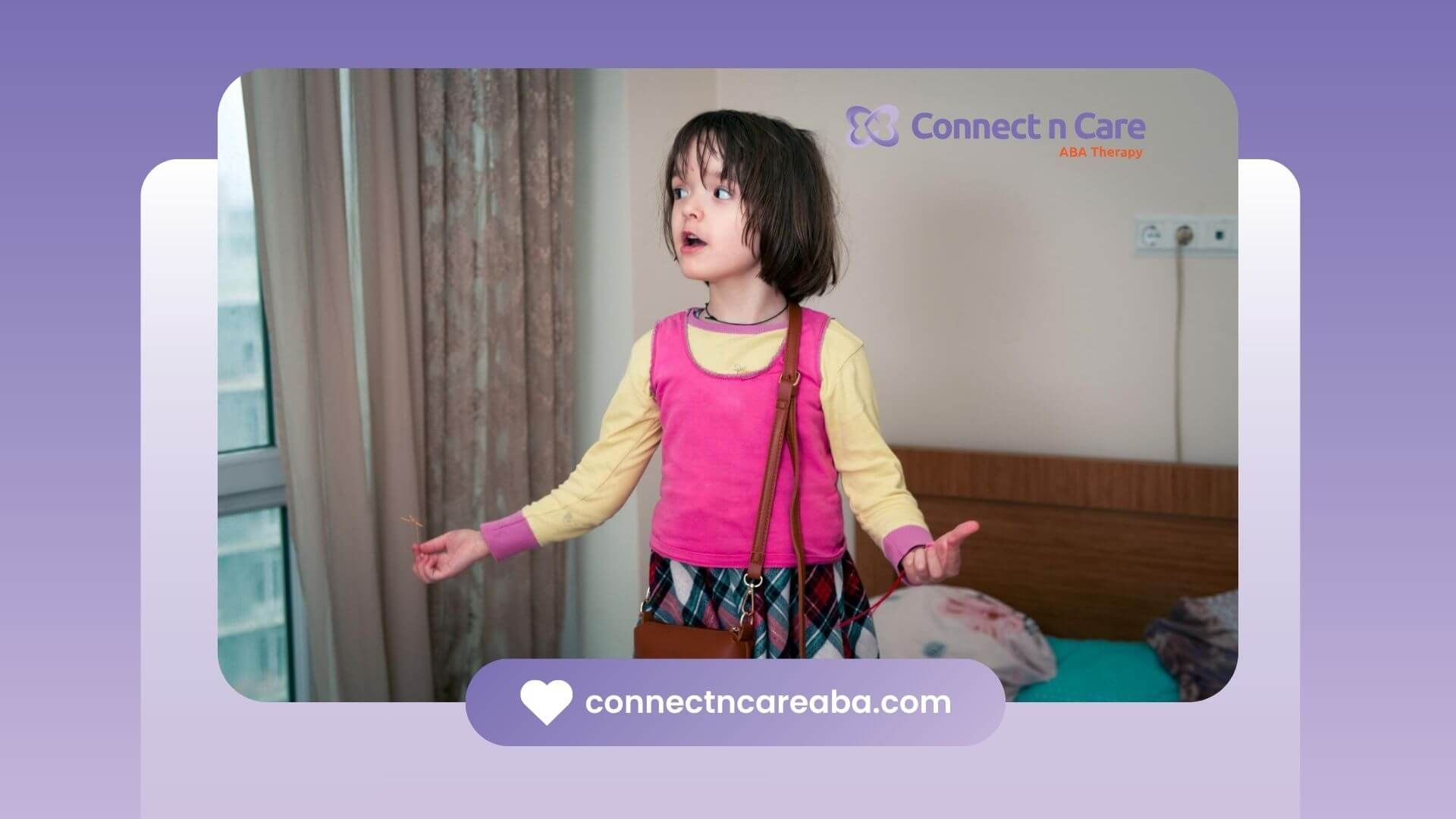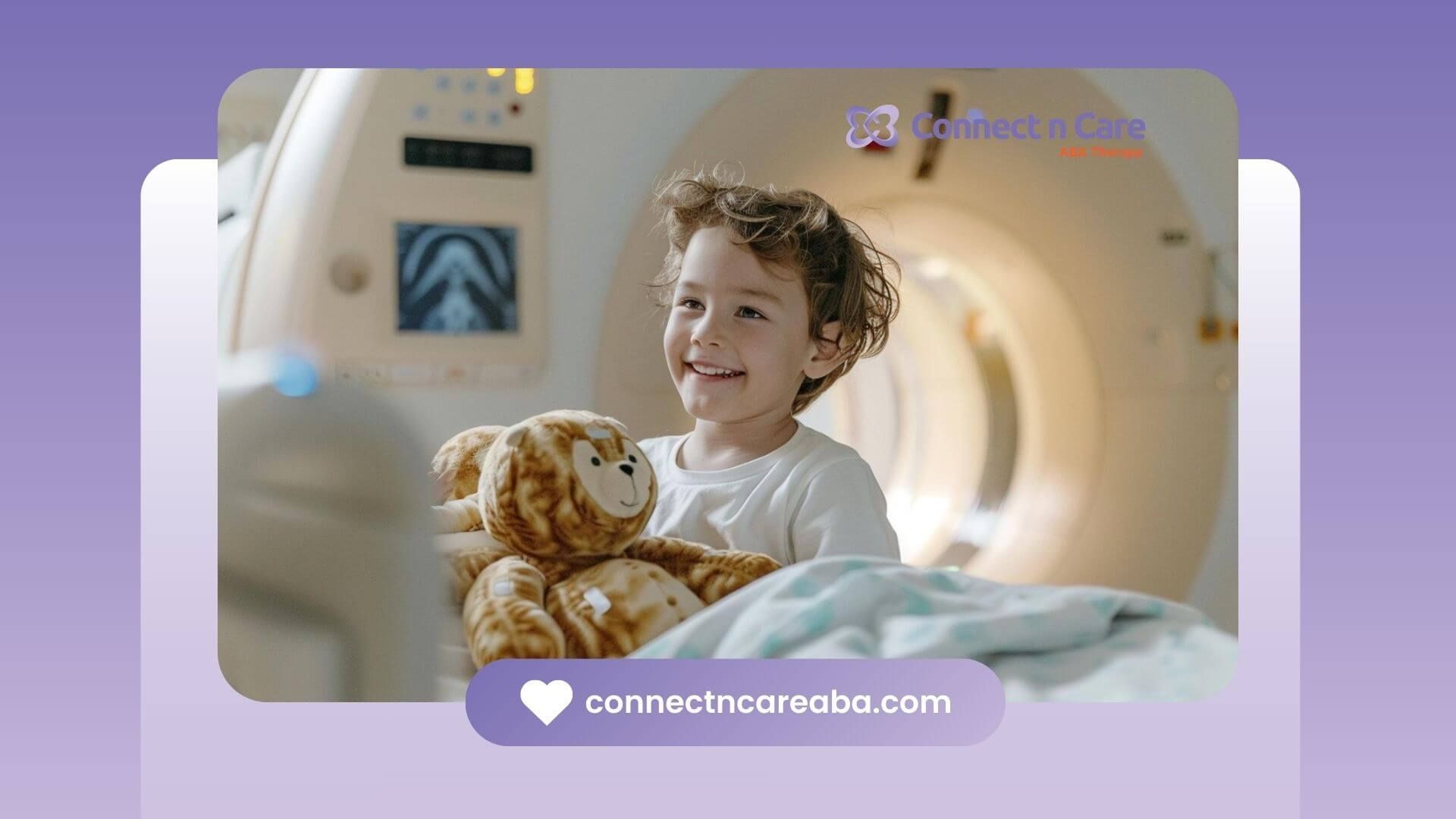Navigating the world of love and relationships can be a complex journey for anyone. For autistic people, this path can present unique challenges and experiences. Do people on the autism spectrum fall in love easily? This question opens up an important conversation about how love is felt and expressed. This article will explore the emotional world of autistic individuals, debunk common myths, and highlight how they form a deep emotional connection and build loving, meaningful relationships in their own way.
Understanding Autism and Emotional Experience
Understanding how individuals on the autism spectrum experience emotions is the first step to appreciating their approach to love. While they may have different social skills, it doesn't mean they don't have deep feelings. They experience love, joy, and heartache, but their way of processing and showing these emotions can be different from what neurotypical people expect.
This unique emotional processing means their emotional needs might also differ. Recognizing that autistic people experience love and have a rich inner world is crucial. We will explore what defines the autism spectrum and how it shapes the way they process their own feelings.
What is Autism Spectrum Disorder?
Autism Spectrum Disorder (ASD) is a developmental condition that influences how a person perceives the world and interacts with others. The term "spectrum" is used because autism affects each person differently. There are no two autistic individuals who are exactly alike, and the different types of autism present a wide range of characteristics and support needs.
Common traits include challenges with social interaction, repetitive behaviors, and highly focused interests. Many individuals with autism also have sensory sensitivities, meaning they can be over-or under-sensitive to light, sound, touch, or taste. Misinterpreting social cues, like body language or tone of voice, is another common challenge.
These characteristics directly impact the emotional experience. For instance, sensory sensitivities can make a crowded date spot overwhelming, and difficulty with social cues can make it hard to understand flirting. This doesn't mean emotions aren't felt; it means the context and expression of those feelings are shaped by the unique neurology of autism.
How Autistic People Process Emotions
Autistic people process emotions, but their emotional response may not look like what many neurotypical individuals expect. Some may find it challenging to identify and name their own feelings, a condition known as alexithymia, which can co-occur with autism. This doesn't mean feelings are absent, but that they can be confusing to understand internally.
This unique processing can also affect social interaction. An autistic individual might not show a typical facial expression when happy or sad, but that doesn't mean they aren't experiencing the emotion. They might express their feelings in unique ways, such as through actions, intense focus on a partner, or straightforward verbal statements.
Because of this, it is a misconception that autistic people lack emotion. They feel deeply, but the journey from feeling an emotion to understanding and expressing it can be different. Patience and open communication are vital for a neurotypical partner to understand their loved one's inner world.
Love on the Autism Spectrum
When it comes to love on the autism spectrum, the capacity to feel is immense. Autistic individuals can and do experience love, romantic attraction, and a profound emotional connection with others. However, the manifestation of romantic love might differ from neurotypical norms. For many, love is characterized by deep loyalty, intense devotion, and unwavering honesty.
This experience of love is authentic and powerful. The following sections will look closer at how autistic individuals feel love and the different ways they might show affection to their romantic partners.
How Do Autistic People Experience Love?
Absolutely. Autistic people can experience incredibly deep and meaningful love. Rather than being flighty or casual, love for an autistic person is often characterized by intense emotions and a powerful sense of loyalty. They may form a very strong attachment to their romantic partners, thinking about them constantly and feeling their emotions deeply.
This intensity can be a unique strength. When an autistic individual falls in love, their connection is often profound and all-consuming. They may express this through unwavering devotion and a commitment that is deeply sincere. Their love is not less, but it can be more focused and intense than what some neurotypical individuals are used to.
Ultimately, the ability to experience love is a fundamental human trait that is not limited by being on the autism spectrum. The emotional connection they form can be just as, if not more, meaningful and lasting than any other.
Differences in Expressing Affection
The expression of love from an autistic person might not always involve traditional romantic gestures. Because they may struggle to interpret subtle social cues or use conventional body language and facial expressions, they often show affection in their own unique ways. A neurotypical partner needs to learn to recognize these different forms of affection.
These expressions are just as valid and meaningful. For example, an autistic partner might show love through practical acts of service, like fixing something that is broken, or by sharing their most treasured special interests with you. This is a sign of deep trust and connection.
Some other unique ways they might show love include:
- Direct Communication: Stating their feelings directly, such as saying "I love you," without the fanfare of romantic gestures.
- Parallel Play: Simply wanting to be in the same room with you, enjoying your presence without the need for constant conversation.
- Gift Giving: Offering thoughtful gifts related to your interests, showing they listen and care deeply.
- Loyalty: Demonstrating unwavering support and loyalty, which is a powerful expression of love for them.
Common Myths About Autism and Love
There are many damaging myths surrounding autistic people and relationships. A common misconception is that they lack empathy or the desire for connection, which couldn't be further from the truth. These stereotypes can be incredibly isolating and prevent autistic individuals from being seen as potential romantic partners.
Such misunderstandings often stem from differences in social skills and communication styles. In the following sections, we will tackle some of these myths head-on to foster greater understanding and acceptance.
Debunking “Autistic People Don’t Want Relationships”
The idea that autistic people do not desire romantic relationships is one of the most pervasive and harmful myths. The reality is that the vast majority of autistic individuals desire love, companionship, and meaningful relationships just like their neurotypical peers. They experience the same fundamental human need for connection and intimacy.
This misconception likely arises because autistic individuals may find the process of dating and social interaction challenging. The unwritten rules of romance can be confusing, and the stress of social situations may lead them to be more reserved. However, this reservation is a result of social difficulties, not a lack of desire for a relationship.
Many autistic people feel deep empathy and a strong desire to form bonds with others. They want to love and be loved in return. By recognizing this, we can create a more inclusive environment where autistic individuals feel supported in their pursuit of romantic connections.
Addressing Misunderstandings About Social Skills
Yes, differences in social skills can make it challenging for autistic people to express their feelings in conventional ways. They may struggle to read subtle social cues, interpret body language, or understand figurative language and sarcasm. This can lead to misunderstandings in a relationship if a partner is not aware of these differences.
These challenges do not mean an autistic person is unfeeling or uninterested. It simply means their communication skills operate on a different wavelength. For a relationship to thrive, it is important for both partners to adapt and communicate clearly.
Neurotypical partners can help by:
- Being direct and avoiding sarcasm or vague language.
- Not relying solely on body language or facial expressions to convey a message.
- Patiently asking for clarification if they are unsure of their partner's meaning.
Factors Influencing Love and Attachment in Autism
Several key factors on the autism spectrum can influence how romantic feelings and attachment develop. The way an autistic person navigates social interaction and their specific communication preferences play a huge role. Being direct and honest is often more valuable than relying on unspoken cues.
In addition, sensory sensitivities can significantly impact romantic experiences. A person's comfort with physical touch, loud environments, or even certain smells can shape how they engage in a relationship. We will now look at how communication and sensory needs affect love and attachment.
Communication Preferences and Social Interaction
Communication styles heavily influence romantic relationships involving an autistic partner. Many autistic individuals prefer direct, literal, and honest communication. They may find small talk difficult but can engage deeply in conversations about their special interests. This preference for clear communication can actually be a strength, as it reduces games and misunderstandings.
For some, online dating has become a valuable tool. It provides a more controlled environment where communication can be paced and focused on shared interests before meeting in person. This can help build a foundation of mutual understanding before navigating the complexities of face-to-face social interaction.
To foster a healthy relationship, neurotypical partners can adapt their communication skills. Helpful strategies include:
- Using "I" statements to express feelings without placing blame.
- Avoiding figurative language and being clear with your intentions.
- Being patient and giving your autistic partner time to process and respond.
The Role of Sensory Sensitivities in Romantic Feelings
Sensory sensitivities absolutely impact romantic feelings and intimacy for autistic individuals. What might be a show of affection for a neurotypical person, like a spontaneous hug or a kiss in a crowded place, could be overwhelming for an autistic person. These sensory issues are neurological, not an emotional rejection of affection.
These sensitivities can affect relationship dynamics significantly. For example, a person with auditory sensitivity might find a noisy restaurant stressful for a date, while someone with tactile sensitivity may prefer a light touch over a firm one. Understanding and respecting these needs is crucial for physical intimacy and comfort. Open conversations about what feels good and what doesn't can strengthen the emotional connection and ensure both partners feel safe and respected.
| Sensory Input | Potential Challenge for an Autistic Person | Impact on Affection and Intimacy |
|---|---|---|
| Touch | May find light touch irritating or firm hugs overwhelming. | Physical affection like holding hands, hugging, or kissing might need to be approached with clear consent and understanding of preferences. |
| Sound | Loud noises in public places (restaurants, parties) can cause sensory overload and anxiety. | Romantic settings may need to be chosen carefully. A quiet, calm environment is often better for connection than a loud, busy one. |
| Sight | Bright or flashing lights can be disorienting and uncomfortable. | The ambiance for a romantic evening may need to be adjusted (e.g., dim lighting) to create a comfortable and relaxing atmosphere. |
| Smell | Strong perfumes, colognes, or food odors can be nauseating or distracting. | Partners may need to be mindful of scented products to avoid causing sensory discomfort during close moments. |
Challenges and Strengths in Autistic Relationships
While autistic people face unique obstacles in relationships, they also bring incredible strengths. Their capacity for loyalty, honesty, and deep connections can be the foundation of a wonderfully loving relationship. Challenges often revolve around navigating unspoken romantic expectations and interpreting subtle emotional cues from a partner.
However, the strengths are just as significant. An autistic partner is often direct, which eliminates guessing games, and their devotion can create a secure and stable partnership. The following sections will explore these challenges and how to manage them.
Navigating Romantic Expectations
Yes, autistic folks often experience challenges with unspoken romantic expectations. Society has many unwritten rules about dating and relationships—when to call, how to flirt, what gifts are appropriate—that can be baffling for someone who thinks more literally. This can cause anxiety and make dating feel like a test they haven't studied for.
For neurotypical partners, it is important to realize that their autistic partner may not intuitively understand these expectations. What might seem obvious to you may not be to them. This is not due to a lack of care, but a difference in social processing.
The key to navigating this is open communication. Instead of assuming your partner knows what you want, express your emotional needs and expectations directly. For example, saying "I would love it if we could celebrate our anniversary with a quiet dinner at home" is much more effective than dropping hints and feeling disappointed when they are not picked up.
Recognizing and Responding to Emotional Cues
Interpreting emotional cues is often a significant challenge for autistic individuals in relationships. Subtle social cues conveyed through body language, tone of voice, and facial expressions can be missed or misinterpreted. An autistic person might not realize their partner is upset based on a frown alone.
This means their emotional response might seem delayed or mismatched. They are not being insensitive; they are simply processing social information differently. To build a stronger connection, partners can learn to be more explicit about their feelings. Saying "I am feeling sad today" is clearer than expecting them to read your nonverbal cues.
For autistic individuals looking to improve this skill, and for partners wanting to help, some strategies include:
- Asking direct questions like, "How are you feeling about this?"
- Watching movies or shows together and discussing the characters' emotions.
- Neurotypical partners can try to verbalize their feelings more often.
- Practicing recognizing emotions through therapy or social skills groups.
Conclusion
In summary, love on the autism spectrum is a nuanced experience that can be both rich and rewarding. Autistic individuals process emotions differently, which influences how they express affection and form attachments. By debunking common myths, we recognize that people with autism can and do desire meaningful relationships. Understanding the unique challenges and strengths they face in romantic settings can foster deeper connections. It's important to approach these relationships with empathy and patience, allowing for open communication and support.
At Connect n Care ABA, we believe every individual deserves to experience meaningful relationships built on understanding and trust. Our compassionate ABA therapists in North Carolina help individuals on the spectrum develop emotional awareness, communication, and social connection skills—key steps toward building healthy bonds. Through personalized care and guided support, we nurture growth that extends beyond therapy. Reach out to Connect n Care ABA today to start your journey toward deeper emotional connection.
Frequently Asked Questions
Can autistic people have deep, long-lasting romantic relationships?
Yes, absolutely. With open communication, mutual respect, and understanding, autistic people can form deep connections and have successful, meaningful relationships. A romantic relationship with an autistic person can be just as, if not more, rewarding and stable than one between two neurotypical people.
What are signs that an autistic person is in love?
An autistic individual might show love through intense focus on their partner, sharing their special interests, direct verbal statements of affection, or acts of service. Their expression of love may be less about subtle social cues and more about genuine, dedicated actions and loyalty.
Do autistic people find it hard to fall in love or form attachments?
Some autistic people may find it challenging to navigate the social skills required for dating, which can make it harder to form an emotional connection. However, they are fully able to experience love and form a deep attachment once they feel safe and understood in a relationship.
Sources:
- https://www.nimh.nih.gov/health/topics/autism-spectrum-disorders-asd
- https://pmc.ncbi.nlm.nih.gov/articles/PMC3086654/
- https://www.autistica.org.uk/what-is-autism/anxiety-and-autism-hub/alexithymia
- https://www.psychologytoday.com/us/blog/women-autism-spectrum-disorder/202110/can-person-autism-fall-in-love
- https://pmc.ncbi.nlm.nih.gov/articles/PMC3086654/









